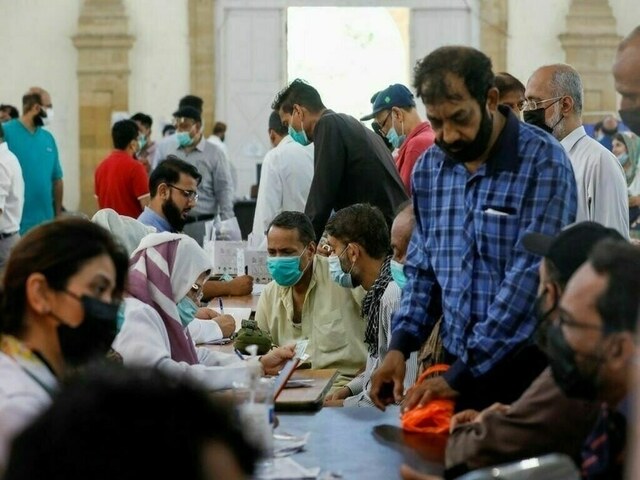Karachi on the Brink: Relentless Rain Fuels Fears of Public Health Emergency

Karachi Faces a Looming Public Health Crisis After Days of Torrential Rain
Karachi, Pakistan's bustling megacity, is grappling with the aftermath of relentless rainfall, and experts are sounding the alarm about a rapidly escalating public health crisis. Days of torrential downpours have brought the city to a standstill, exacerbating existing infrastructure challenges and creating conditions ripe for the spread of waterborne diseases. Authorities are struggling to maintain order amidst the chaos, with some describing the situation as 'ungovernable'.
A Perfect Storm for Disease
The combination of widespread flooding, contaminated water sources, and inadequate sanitation is creating a perfect storm for the outbreak of diseases like diarrhoea, typhoid, cholera, and other waterborne illnesses. Standing water provides breeding grounds for mosquitoes, increasing the risk of malaria and dengue fever. The sheer scale of the flooding makes it incredibly difficult to effectively disinfect water supplies and manage waste.
Vulnerable Populations at Greatest Risk
The most vulnerable populations – low-income communities living in informal settlements and those with limited access to clean water and healthcare – are disproportionately affected. Many residents rely on open drains and contaminated water sources for their daily needs, significantly increasing their exposure to disease. Overcrowded conditions further amplify the risk of transmission.
Government Response and Challenges
While the government has initiated relief efforts, including the distribution of clean water and medical supplies, the scale of the crisis is overwhelming. Challenges include limited resources, logistical hurdles in reaching affected areas, and a lack of coordination between different agencies. The city’s aging infrastructure, plagued by years of neglect and inadequate maintenance, is proving unable to cope with the intensity of the rainfall.
Expert Warnings and Recommendations
Public health experts are urging immediate and decisive action to prevent a full-blown health disaster. Key recommendations include:
- Prioritizing Water Sanitation: Aggressive disinfection of water sources and the provision of safe drinking water to affected communities.
- Improving Sanitation: Addressing the inadequate sanitation infrastructure and ensuring proper waste disposal.
- Disease Surveillance: Strengthening disease surveillance systems to quickly identify and respond to outbreaks.
- Public Awareness Campaigns: Educating the public about preventative measures, such as handwashing and safe food handling.
- Long-Term Infrastructure Investment: Investing in robust and resilient infrastructure to mitigate the impact of future extreme weather events.
The Road Ahead
The situation in Karachi remains critical. Addressing the immediate public health crisis requires a concerted effort from the government, aid organizations, and the community. However, the underlying issues of inadequate infrastructure and poor urban planning must be addressed to build a more resilient and healthy Karachi for the future. Failure to do so risks recurring public health emergencies with devastating consequences.






